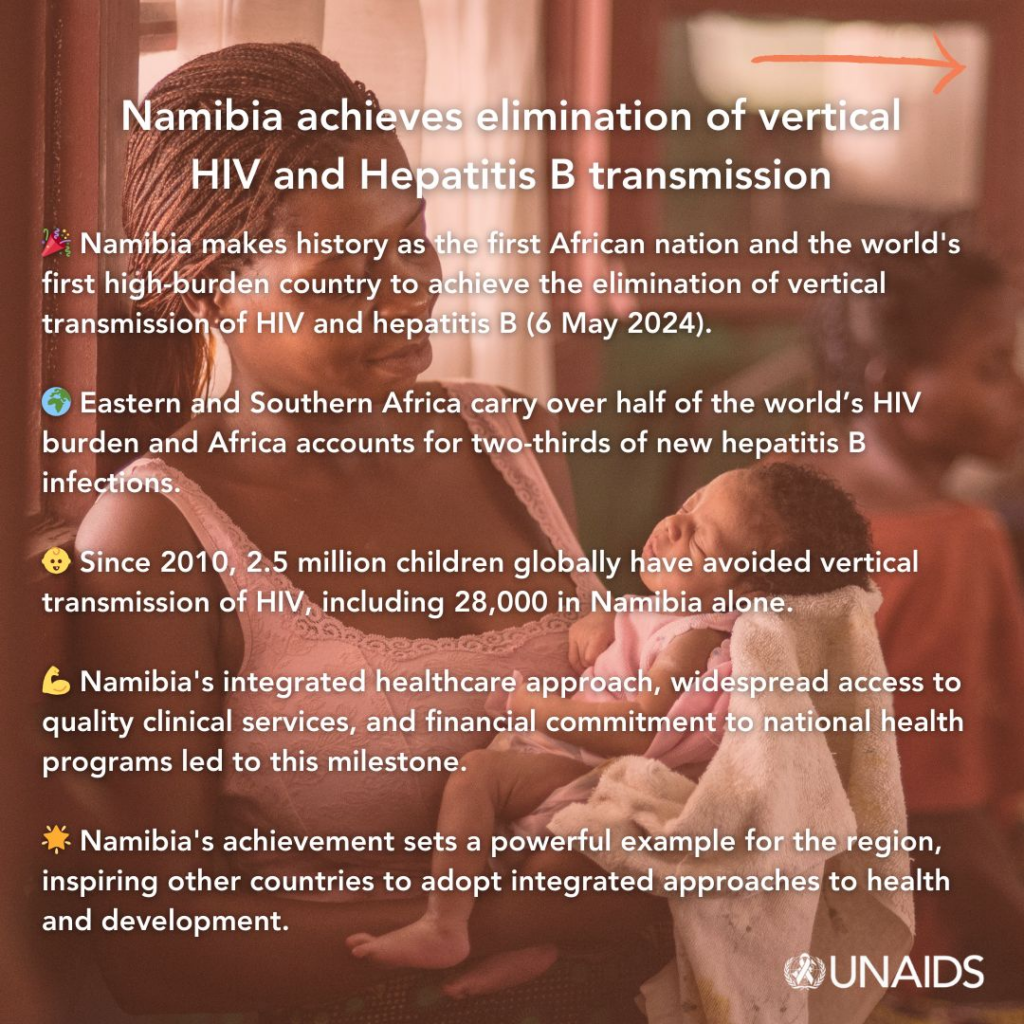
Namibia has become the first African country to significantly reduce the transmission of HIV and hepatitis B from mothers to their children.
The country’s integrated approach to primary healthcare, including antenatal, child health, and sexual and reproductive health services, has been crucial to this achievement. Namibia’s government has also committed stable domestic funding to national health programs, ensuring widely accessible, quality, and free clinical services and support.

Namibia is considered a “high-burden country” because of it’s high prevalence of HIV infection. According to UNAIDS, there were approximately 220,000 adults and children living with HIV infection in 2022.
The World Health Organization (WHO) has recognized Namibia’s progress, awarding the country “silver tier” status for reducing hepatitis B transmission and “bronze tier” for reducing HIV transmission. This milestone is part of WHO’s Triple Elimination Initiative, which aims to end the transmission of HIV, hepatitis B, and syphilis from mothers to children.
“Namibia has fought against this injustice, and we are proud to celebrate their immense effort to leave no child behind. They serve as a beacon for the entire region,” said Anne Githuku-Shongwe, UNAIDS Regional Director for East and Southern Africa, in a recent statement.
Read the May 4, 2024 press release: Namibia reaches key milestone in eliminating mother-to-child transmission of HIV and hepatitis B
